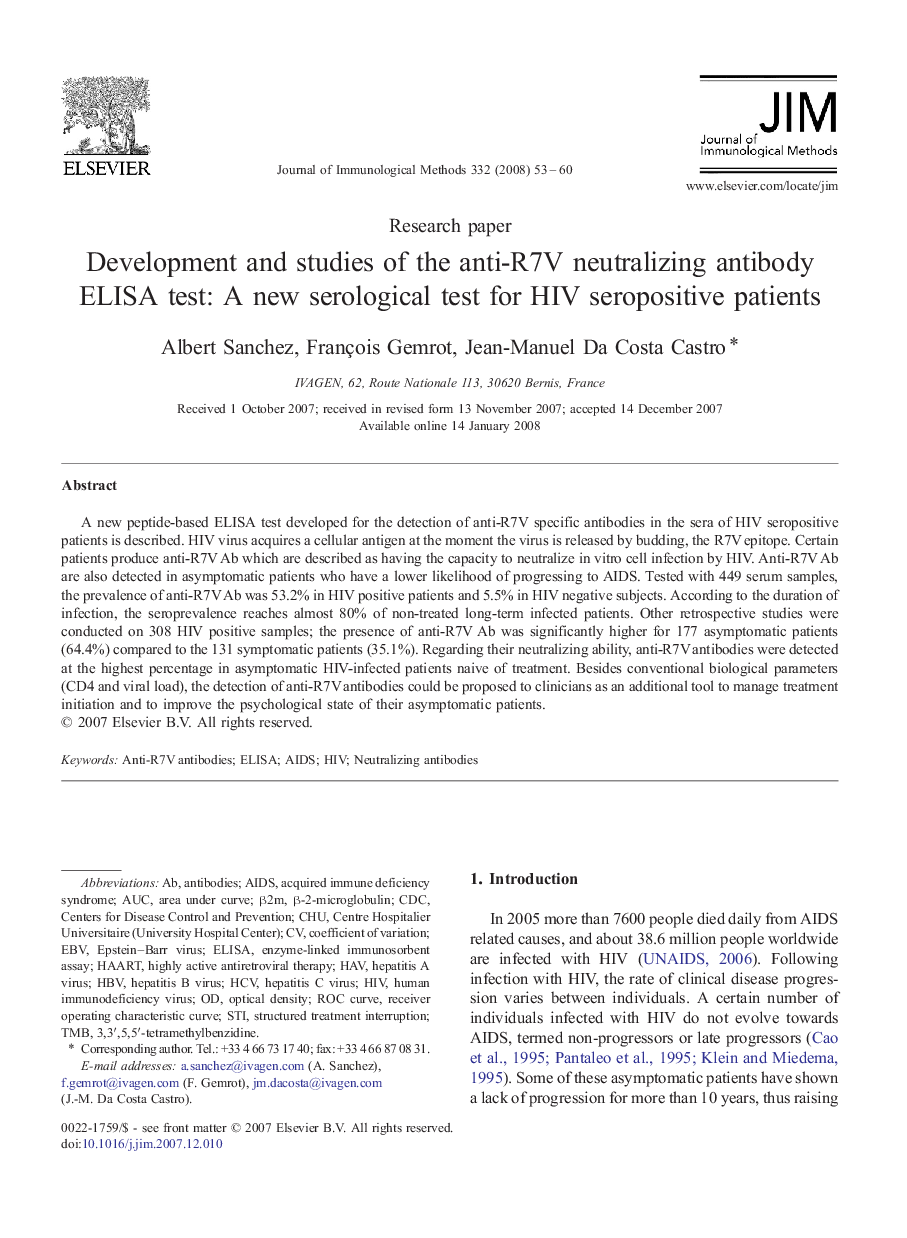| Article ID | Journal | Published Year | Pages | File Type |
|---|---|---|---|---|
| 2089397 | Journal of Immunological Methods | 2008 | 8 Pages |
Abstract
A new peptide-based ELISA test developed for the detection of anti-R7V specific antibodies in the sera of HIV seropositive patients is described. HIV virus acquires a cellular antigen at the moment the virus is released by budding, the R7V epitope. Certain patients produce anti-R7V Ab which are described as having the capacity to neutralize in vitro cell infection by HIV. Anti-R7V Ab are also detected in asymptomatic patients who have a lower likelihood of progressing to AIDS. Tested with 449 serum samples, the prevalence of anti-R7V Ab was 53.2% in HIV positive patients and 5.5% in HIV negative subjects. According to the duration of infection, the seroprevalence reaches almost 80% of non-treated long-term infected patients. Other retrospective studies were conducted on 308 HIV positive samples; the presence of anti-R7V Ab was significantly higher for 177 asymptomatic patients (64.4%) compared to the 131 symptomatic patients (35.1%). Regarding their neutralizing ability, anti-R7V antibodies were detected at the highest percentage in asymptomatic HIV-infected patients naive of treatment. Besides conventional biological parameters (CD4 and viral load), the detection of anti-R7V antibodies could be proposed to clinicians as an additional tool to manage treatment initiation and to improve the psychological state of their asymptomatic patients.
Keywords
HAARTStructured treatment interruptionHAVTMBSTICDCβ2MAUCβ-2-microglobulinantibodiesNeutralizing antibodiesEBVAIDSEnzyme-linked immunosorbent assayELISAhighly active antiretroviral therapyacquired immune deficiency syndromeCoefficient of VariationCenters for Disease Control and PreventionROC curveReceiver operating characteristic curvearea under curveHBVHepatitis C virusHCVEpstein–Barr virushuman immunodeficiency virusHIVHAV, Hepatitis A virushepatitis B virusChuoptical density
Related Topics
Life Sciences
Biochemistry, Genetics and Molecular Biology
Biotechnology
Authors
Albert Sanchez, François Gemrot, Jean-Manuel Da Costa Castro,
